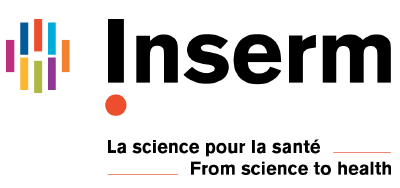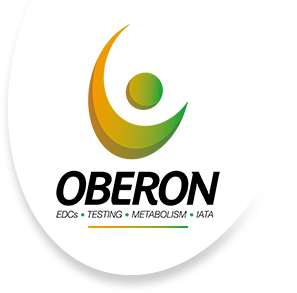PRESENTATION
Context
Exposure to chemical substances that can produce endocrine disrupting effects represents one of the most critical public health threats nowadays. In line with the regulatory framework implemented within the European Union to reduce the levels of endocrine disruptors (EDs) for consumers, new and effective methods for ED testing are needed.
Objectives
The OBERON project will build an integrated approach for testing and assessment (IATA) to detect endocrine disruptors-related metabolic disorders by developing, improving and validating a battery of test systems.
Description
OBERON will combine:
1
Experimental methods: in vitro e.g. on 2D and 3D human-derived cells and tissues, and in vivo i.e. in zebrafish
2
High throughput omics technologies
3
Epidemiology and human biomonitoring studies
4
Advanced computational models: in silico (QSAR, PBPK) and systems biology
OBERON will allow:
1
To build a mechanistic understanding of toxicity in order to detect ED
2
To help identifying effective and alternative tests, relevant for human health and in line with regulatory needs
3
To contribute to the development of novel Adverse Outcome Pathways (AOPs) and AOP networks
OBERON IN NUMBERS
OBERON is a collaborative project funded by the EU Framework Programme for Research and Innovation Action (RIA), Horizon 2020, under Grant Agreement no 825712. With a budget of over 6.7 million €, OBERON started on 1st January 2019 and will last for a duration of 5 years.
THE PROJECT
Exposure to chemical substances that can produce endocrine disrupting effects represents one of the most critical public health threats nowadays. In line with the regulatory framework implemented within the European Union to reduce the levels of endocrine disruptors (EDs) for consumers, new and effective methods for ED testing are needed. The OBERON project will build an integrated testing strategy (ITS) to detect EDs-related metabolic disorders by developing, improving and validating a battery of test systems. It will be based on the concept of an integrated approach for testing and assessment (IATA).
EXPECTED RESULTS
The direct impacts will be:
- To set up and make available an innovative battery of new, easy to use, effective and validated test systems, combining different experimental and computational strategies, to be used for regulatory aspects regarding ED assessment in relation to metabolic disorders.
- To improve knowledge on EDs based on data generated by OBERON in cell biology, zebrafish, omics technologies and systems biology. Novel mechanistic knowledge will be established, allowing development of novel Adverse Outcome Pathways (AOPs), as well as integration of information in existing AOPs, and identification of novel biomarkers to improve risk assessment frameworks for human health effects.
CONSORTIUM
Partners from 5 EU countries are involved in the project.
The project is coordinated by INSERM :


EURION: A CLUSTER FOCUS ON ENDOCRINE DISRUPTORS
In order to optimize synergies and avoid overlaps between the projects selected for funding from the call SC1-BHC-27-2018 ‘New testing and screening methods to identify endocrine disrupting chemicals’, the projects will form a cluster. It is named EURION for “European Cluster to Improve Identification of Endocrine Disruptors”. This cluster was launched on January 1st 2019.
LATEST NEWS
Publication in Tox. and applied Pharmaco. by Karine Audouze
Biological systems are disturbed by several factors that are defined by the exposome. Environmental substances, including endocrine disruptors (EDs), represent the chemical exposome. These stressors may alter biological systems, that could lead to toxic health effects. Even if scientific evidence provide links between diverse environmental substances and disorders, innovative approaches, including alternative methods to animal testing, are still needed to address the complexity of the chemical mechanisms of action.
Continue ReadingPUBLICATION IN INT. J. MOL. SCI. BY KARINE AUDOUZE
Exposure to chemical substances that can produce endocrine disrupting effects represents one of the most critical public health threats nowadays. In line with the regulatory framework implemented within the European Union (EU) to reduce the levels of endocrine disruptors (EDs) for consumers, new and effective methods for ED testing are needed.
Continue ReadingMEETINGS
OBERON Consortium Meetings
2021
- 22 & 23 April 2021: OBERON Annual meeting (online due to COVID)
2020
- 06 & 07 February 2020: OBERON Annual meeting
Cluster Meetings
2021
- 28 & 29 January 2021: Annual Cluster meeting (online due to COVID)
2020
- 04 & 05 February 2020: Annual Cluster meeting
2019
- October 2019: Webinar with the International Advisory Panel
Conferences
Forthcoming












 Download presentation leaflet
Download presentation leaflet